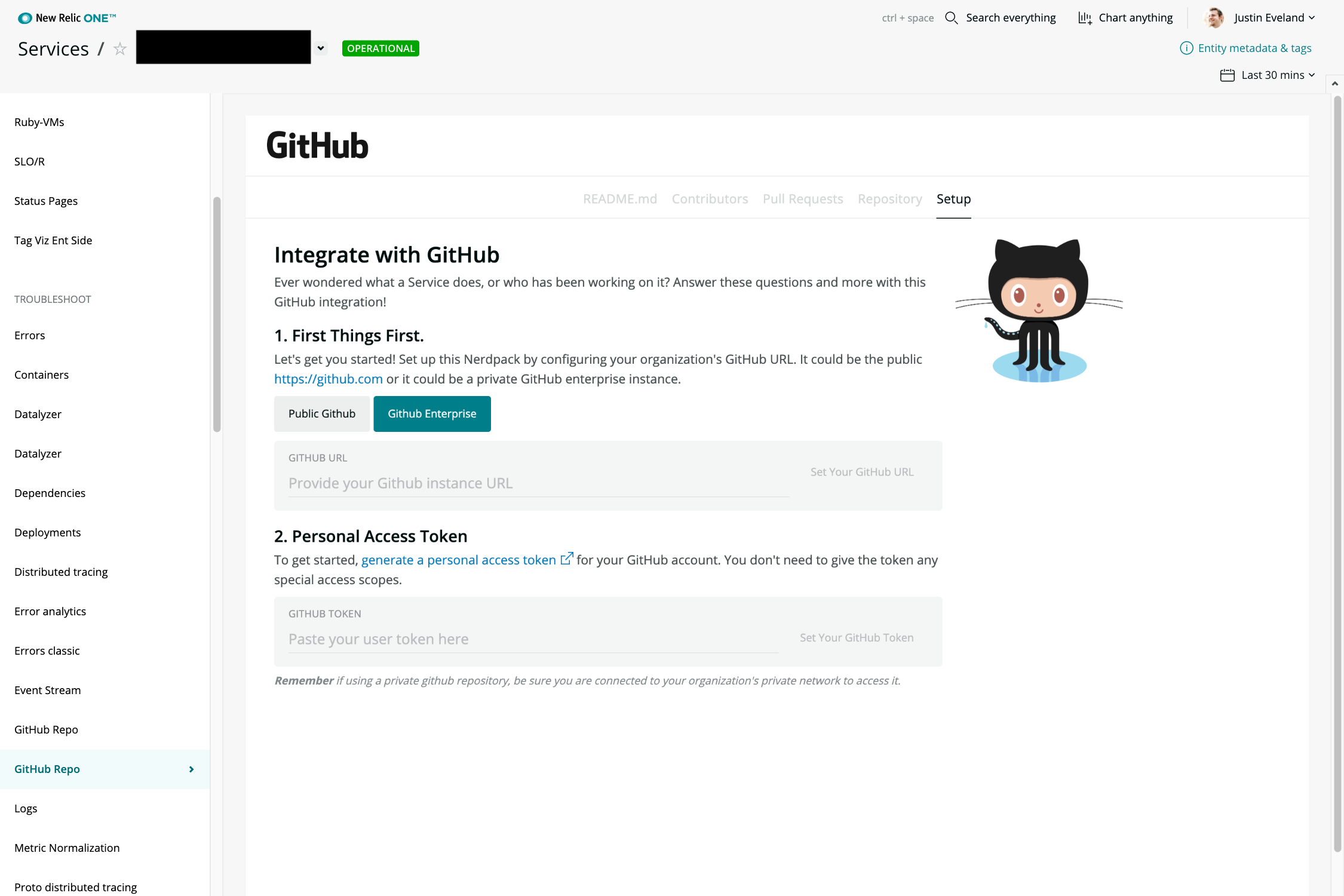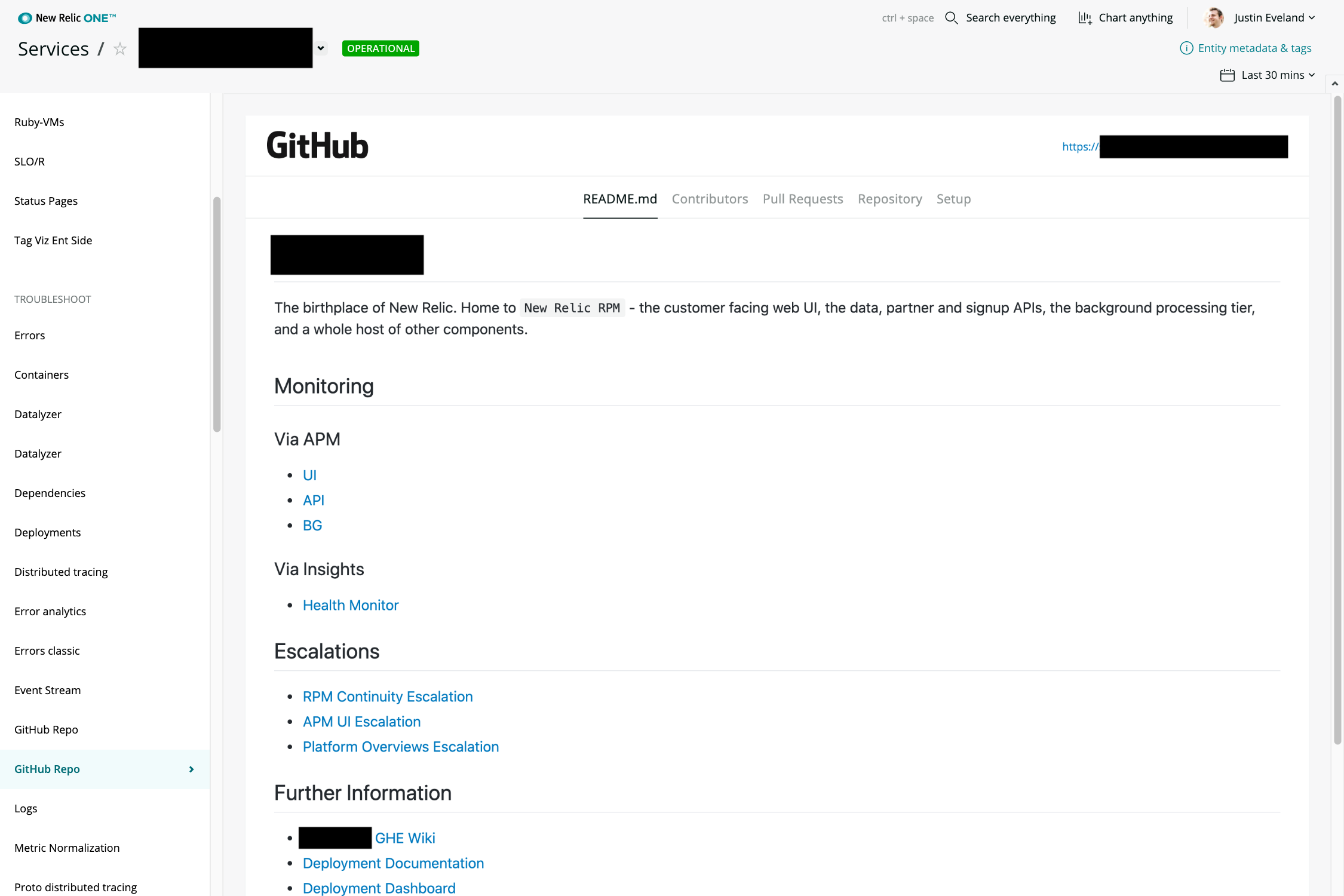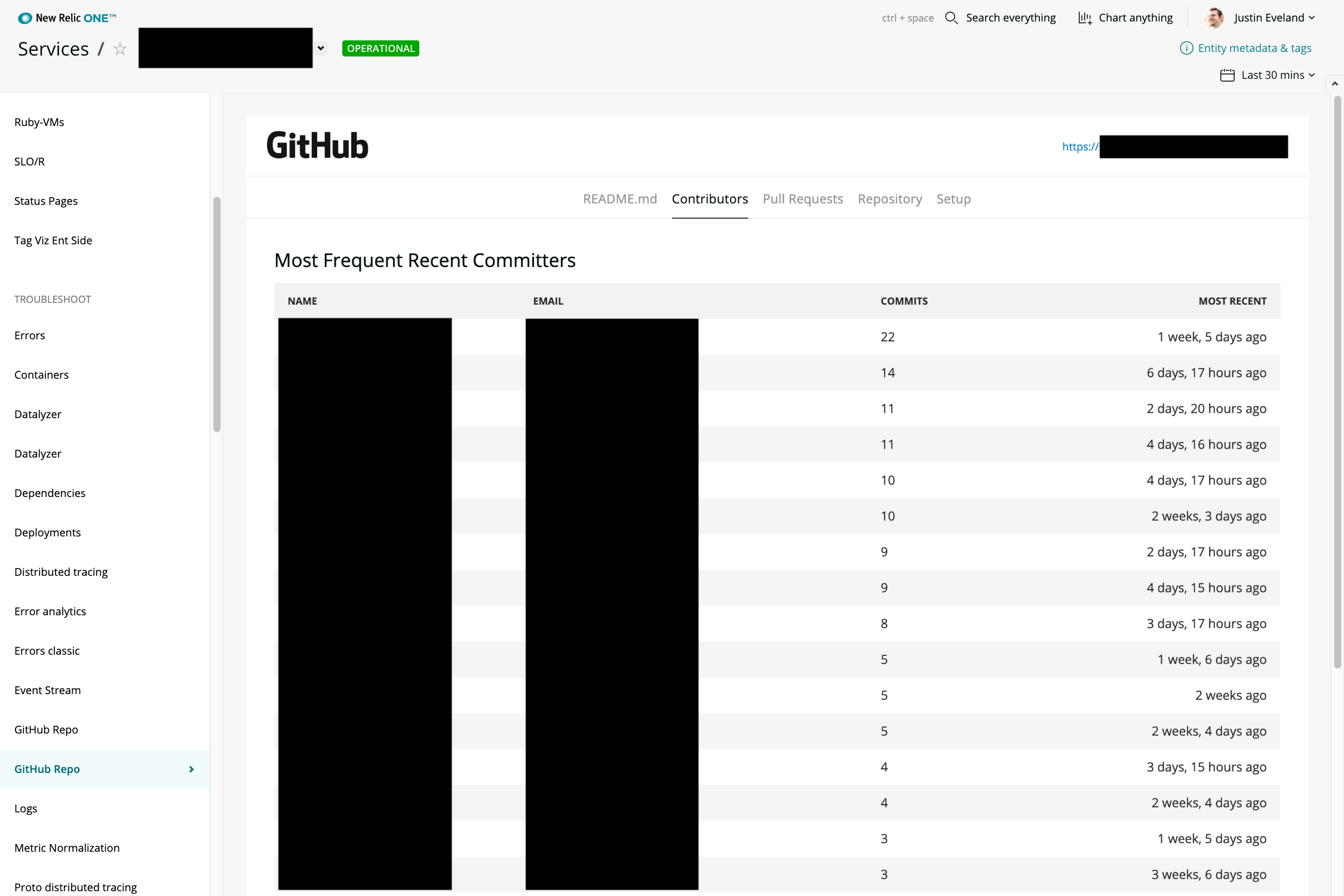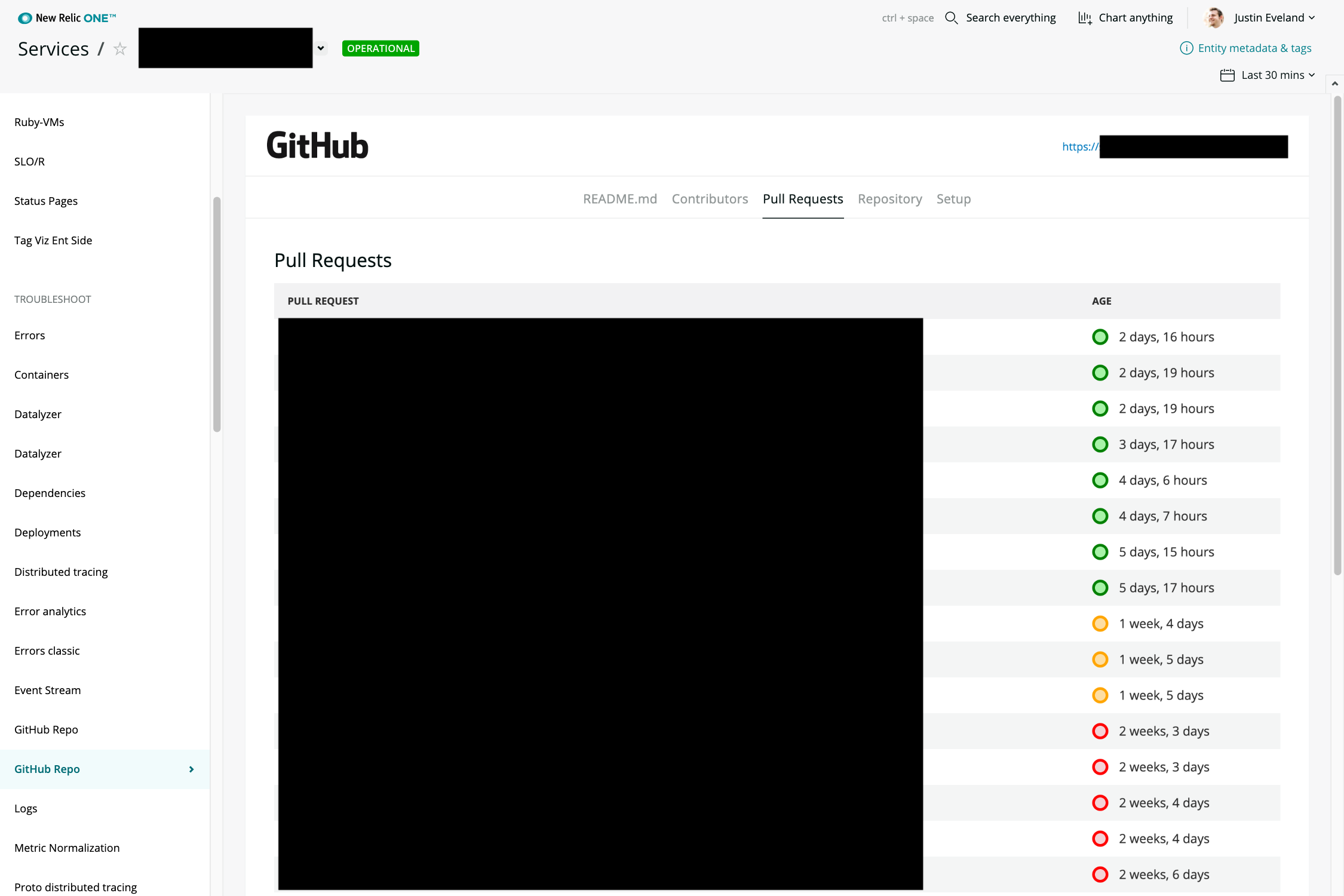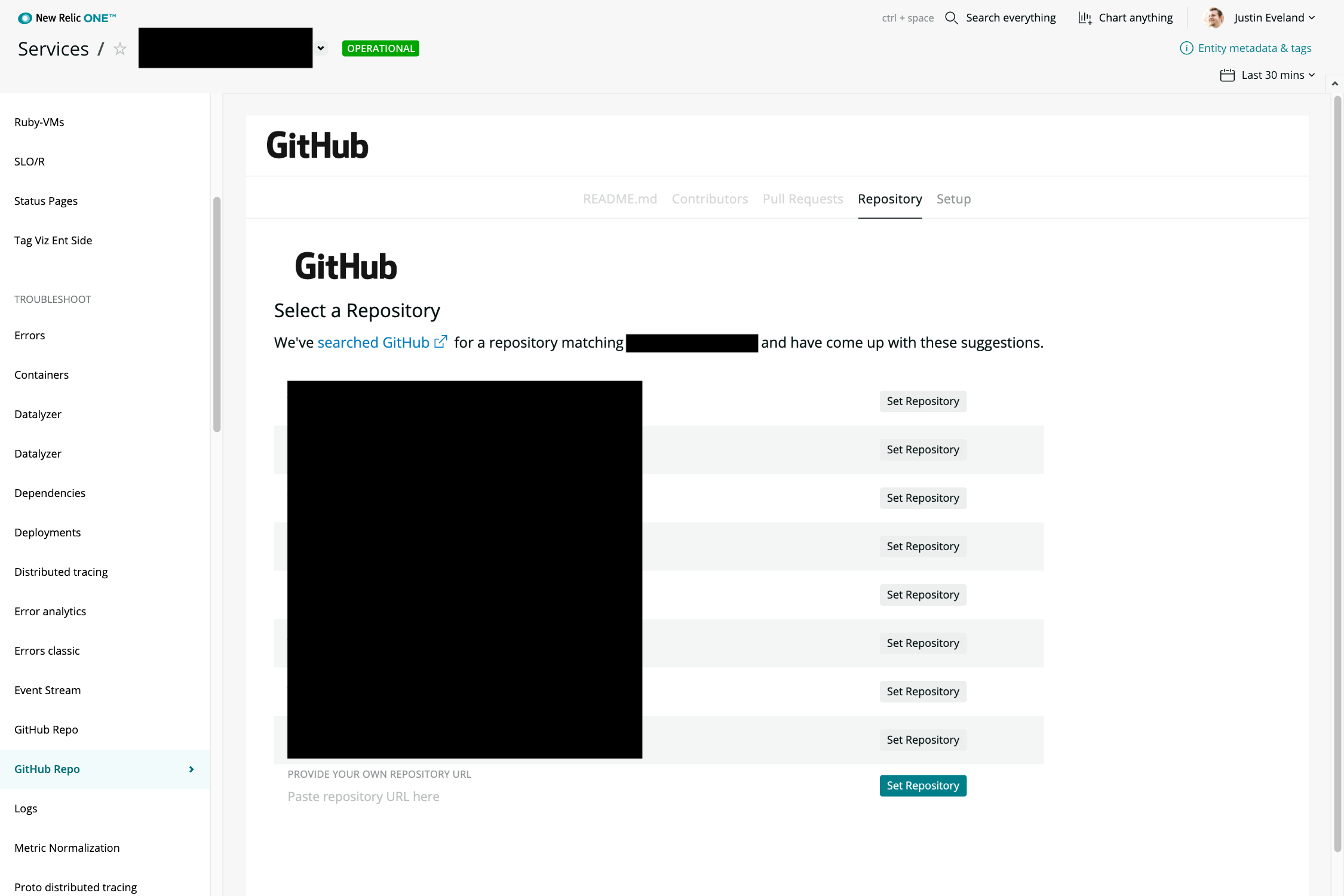GitHub Integration connects services and applications in New Relic to an associated GitHub repository.
The GitHub Integration application will display quick access to the repository, a list of the most active source code contributors and the README.
This information is easily accessible in context when looking at individual services or applications.
- A public or private enterprise instance of GitHub.
- The ability to generate a personal access token in GitHub.
- Requires at least one of
New Relic APM,New Relic BrowserorNew Relic Mobile.
Integration with GitHub requires the user to create or use a private access token as a one-time setup step. This GitHub personal access token increases security, because it ensures each user can only see repositories they have access to. New Relic will store that access token, but the user can easily delete it from New Relic's storage at any time.
We recommend creating a dedicated personal access token for this application only,
and you should give that token read only permissions. See
GitHub's doc on access tokens
for full instructions.
Personal access tokens are stored in New Relic's NerdStorageVault, and are accessible only to the user account that stored it, and the Nerdpack which created it. The data is encrypted in transmission and at rest (within the underlying database).
To keep your Personal Access Token secure, you are no longer able to set an account-wide GitHub URL. GitHub URLs are now scoped to an individual user. If a URL has been setup by someone in your account, it will be suggested to you and you can choose to set it if you trust the source.
This App is available via the New Relic Catalog.
To enable it in your account, go to Add Data > Apps and Visualzations and search for "Github Integration". Click the Github Integration card, and then click the Add this App button to add it to your account(s).
Once subscribed:
- navigate to an APM, Browser or Mobile app via the Entity Explorer in New Relic One
- locate and click the
Github Integrationmenu item in the secondary left-nav, found underMore Views(note: on the first time accessing the app, you may be prompted to enable it)
If you need to customize the app, fork the codebase and follow the instructions on how to Customize a Nerdpack. If you have a change you feel everyone can benefit from, please submit a PR!
This project is actively maintained by the New Relic Labs team. Connect with us directly by creating issues or asking questions in the discussions section of this repo.
We also encourage you to bring your experiences and questions to the Explorers Hub where our community members collaborate on solutions and new ideas.
New Relic has open-sourced this project, which is provided AS-IS WITHOUT WARRANTY OR DEDICATED SUPPORT.
As noted in our security policy, New Relic is committed to the privacy and security of our customers and their data. We believe that providing coordinated disclosure by security researchers and engaging with the security community are important means to achieve our security goals.
If you believe you have found a security vulnerability in this project or any of New Relic's products or websites, we welcome and greatly appreciate you reporting it to New Relic through HackerOne.
Contributions are welcome (and if you submit a Enhancement Request, expect to be invited to contribute it yourself 😁). Please review our Contributors Guide.
Keep in mind that when you submit your pull request, you'll need to sign the CLA via the click-through using CLA-Assistant. If you'd like to execute our corporate CLA, or if you have any questions, please drop us an email at opensource+nr1-github@newrelic.com.
This project is distributed under the Apache 2 license.


